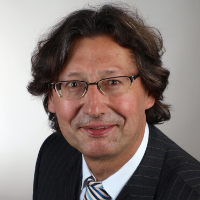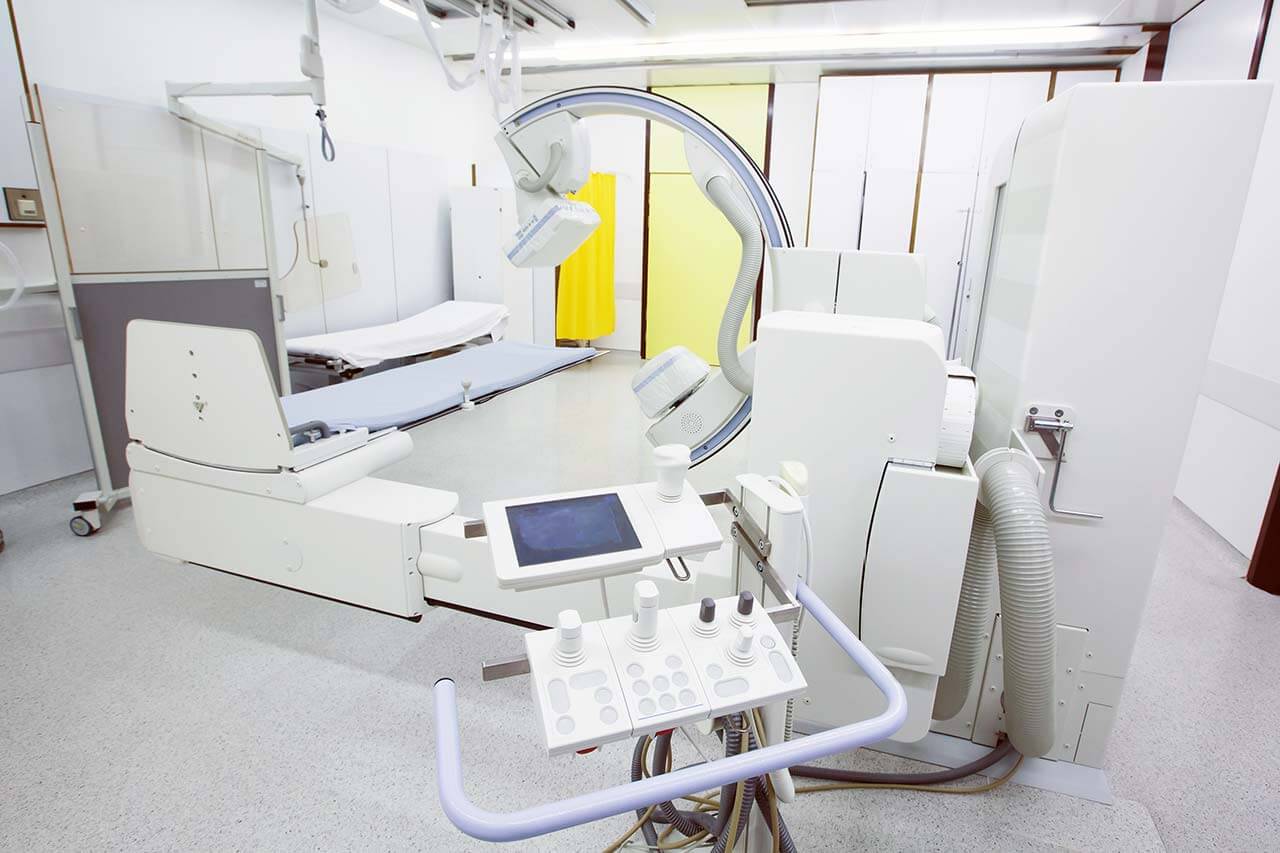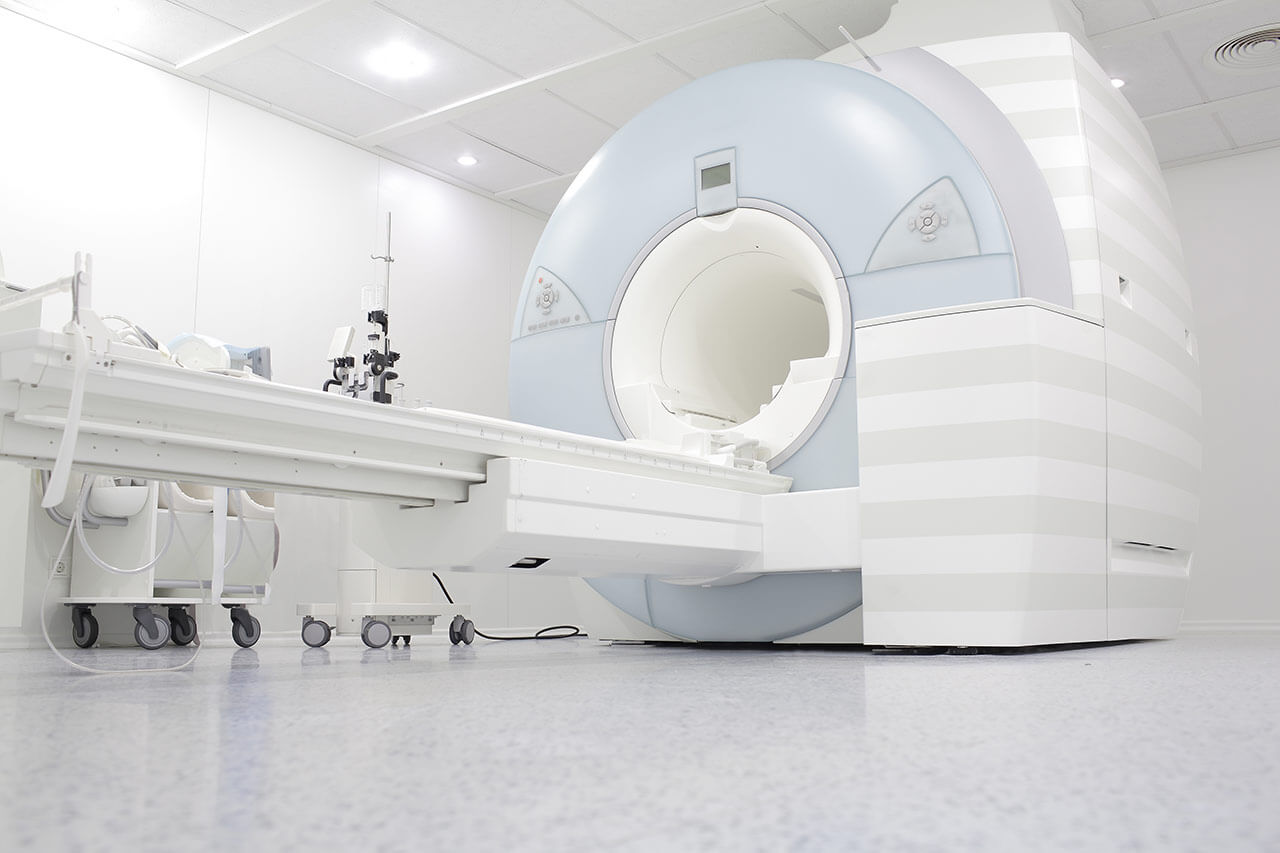
The program includes:
- Initial presentation in the clinic
- clinical history taking
- physical examination
- review of medical records
- laboratory tests:
- complete blood count
- general urine analysis
- biochemical analysis of blood
- TSH-basal, fT3, fT4
- indicators of inflammation (CRP, ESR)
- indicators blood coagulation
- abdominal ultrasound
- CT/MRI abdomen
- abdominal ultrasound
- gastroscopy with biopsy
- analysis on the hp (helicobacter pylori)
- preoperative care
- surgical excision of stomach polyps
- microscopic examination
- symptomatic treatment
- control examinations
- the cost of essential medicines and materials
- nursing services
- nutrition recommendations
- full hospital accommodation
- explanation of future recommendations
Required documents
- Medical records
- Esophagogastroduodenoscopy (EGD) (if available)
Service
You may also book:
 BookingHealth Price from:
BookingHealth Price from:
About the department
The Department of Pediatric Surgery at the Hannover Medical School offers all the options of modern surgery for the treatment of various diseases in children. The team of the department's doctors admits newborns, young children and adolescents under the age of 18. The main clinical focuses of the medical facility are on minimally invasive surgery, neonatal surgery, cancer surgery in children, surgical treatment of genitourinary diseases and various injuries, as well as correction of congenital thoracic deformities. The department performs about 2,000 operations annually, including more than 200 major and minimally invasive thoracoscopic and laparoscopic operations. The department has 36 beds for children and 15 beds for their parents. If clinically indicated, pediatric surgeons always prefer minimally invasive surgical techniques. Doctors maintain a pleasant and friendly atmosphere in the department so that young patients feel comfortable. The department is headed by Prof. Dr. med. Benno Ure.
The department has two large surgery blocks with state-of-the-art technology (including the necessary sets of instruments and equipment for minimally invasive surgery). The range of surgical interventions varies from outpatient procedures to complex operations, during which a heart-lung machine is used. It should be noted that the department specializes in operations of any complexity in children of all age groups, ranging from premature babies born before the 30th week of pregnancy (sometimes weighing less than 500 grams), and ending with 16-year-olds, whose growth may exceed 1,80 meters.
The department's medical team consists of 23 highly qualified specialists with long experience and deep expert knowledge. In addition to clinical activities, special attention is paid to research work in the field of minimally invasive technologies and pathophysiology. The main research projects focus on three priority areas: stem cell therapy, treatment of biliary atresia, and tissue engineering.
The department most often admits children with general surgical diseases: inguinal and umbilical hernias, intussusception, Meckel's diverticulum, appendicitis, gastroesophageal reflux disease, neck cysts, etc. More than 50 types of operations on the abdominal and thoracic organs are performed using minimally invasive surgical techniques. The use of sparing surgical techniques contributes to the rapid postoperative recovery of the child, and also virtually eliminates the risk of complications.
The department's doctors are distinguished by their outstanding achievements in the surgical treatment of malignant tumors in children. The specialization of the medical facility in this field includes resection of neuroblastomas, nephroblastomas, liver tumors, pancreatic tumors, soft tissue tumors (sarcomas) and bone tumors. Prior to the surgical procedure, each clinical case is considered at an interdisciplinary board with the participation of pediatricians, pediatric oncologists, radiologists and other specialists. The doctors cooperate closely with surgeons to develop optimal treatment tactics. The first-line therapy is usually surgical removal of the tumor, after which chemotherapy or radiation therapy is prescribed to a child. The doctors also use immunotherapy in some cases.
The department's medical staff understands that the upcoming operation is a huge emotional shock for both the child and his parents, therefore they devote enough time to personal communication with young patients and their families, informing them in detail about each stage of treatment. In addition, the doctors always strive to establish a trusting relationship with the child and do everything possible so that he does not feel fear of the upcoming operation.
The department provides the surgical treatment of the following diseases:
- Surgical interventions in newborns and premature babies
- Esophageal atresia
- Duodenal atresia
- Small bowel atresia
- Gastroschisis
- Omphalocele
- Intestinal malrotation
- General pediatric surgery
- Inguinal hernias
- Undescended testicles
- Phimosis
- Neck cysts and fistulas
- Umbilical hernias
- Hemangiomas
- Intussusception
- Meckel's diverticulum
- Omphalitis ( or "weeping umbilicus")
- Appendicitis
- Hypertrophic pyloric stenosis
- Gastroesophageal reflux
- Splenomegaly
- Thymus surgery (thymectomy)
- Achalasia cardia
- Spina bifida
- Pediatric urology
- Hypospadias
- Bladder exstrophy
- Epispadia
- Kidney stones
- Vesicoureteral reflux
- Hepatobiliary surgery
- Choledochal cysts
- Gallbladder stones (cholecystectomy)
- Biliary atresia
- Thoracic surgery (chest deformities)
- Pectus carinatum
- Pectus excavatum
- Congenital cystic adenomatoid malformation of the lung
- Pulmonary sequestration
- Congenital lobar emphysema
- Diaphragmatic hernias
- Cancer surgery
- Neuroblastoma
- Nephroblastoma
- Liver tumors
- Pancreatic tumors
- Soft tissue tumors, sarcomas
- Cervical lymphadenopathies
- Colorectal surgery
- Anorectal malformations/anal atresia
- Hirschsprung's disease
- Chronic inflammatory bowel disease
- Surgical treatment of injuries of any complexity in children and adolescents
- Minimally invasive surgery
- Other medical services
Curriculum vitae
Higher Education and Postgraduate Training
- 1974 - 1977 Study at the University of Vienna, Austria.
- 1977 - 1983 Study at the University of Cologne.
- 1988 Doctoral Degree. Subject: "Treatment of patients with cholera in conditions of disasters in the field hospital", University of Duesseldorf.
- 1995 Habilitation. Subject: "Laparoscopic cholecystectomy: systematic assessment of technology", University of Cologne.
Professional Qualifications
- 1992 Recognized as a Surgeon.
- 1997 Recognized as a Pediatric Surgeon.
- 1997 Recognized as a Pediatric Surgeon by the European Council of Pediatric Surgery (UEMS).
Professional Career
- 1983 - 1985 Assistant Physician of the Department of Internal Medicine at the St. Lucas Clinic in Solingen.
- 1985 - 1986 Doctor of the Cap Anamur Committee, German Emergency Medical Service in Somalia, Yemen and Sudan.
- 1986 - 1988 Assistant Physician of the Department of Pediatric Surgery at the Children's Hospital Cologne.
- 1988 - 1993 Assistant Physician, Department of Surgery II, Chair of Surgery of the University of Cologne.
- 1993 - 1997 Acting Head of the Department of Pediatric Surgery at the Children's Hospital Cologne.
- 1997 - 2000 Consultant and Pediatric Surgeon, Wilhelmina Children's Hospital, University Medical Center Utrecht, the Netherlands.
- 1998 - 2001 Chairman of the Board of the Cap Anamur Committee, German Emergency Medical Service.
- 1999 Interim Head of the Department of Pediatric Surgery, Wilhelmina Children's Hospital, University Medical Center Utrecht, the Netherlands.
- Since 2000 University Professor and Head of the Department of Pediatric Surgery at the Hannover Medical School.
- Since 2009 Director of the Center for Pediatric Surgery of the Hannover Medical School.
Teaching Activities
- Since 1994 Professor Course in Disaster Medicine, European Training Program "Humanitarian Assistance", Ruhr University Bochum, Aix-Marseille III University, University of Deusto, Bilbao College, University of Dublin, Leuven Catholic University, Uppsala University/NOHA Network, Institute of Peacekeeping Law and Humanitarian International Law of the University Bochum.
- 1995 - 2000 Teaching at the University of Cologne, Surgery/Pediatric Surgery.
- 1997 - 2000 Teaching at the Utrecht University (the Netherlands), Pediatric Surgery.
- Since 2000 Teaching at the Hannover Medical School, Pediatric Surgery.
Membership in the International Societies
- President of the European Association of Pediatric Surgery (EUPSA).
- Ex-president of the International Pediatric Endosurgery Group (IPEG).
- Board Member of the International Society of Pediatric Surgical Research.
- Honorary Member of the Egyptian Association of Pediatric Surgery.
- Honorary Member of the Iranian Society of Pediatric Surgery.
- Member of the Netherlands Association of Pediatric Surgery.
- Corresponding Member of the Austrian Association of Pediatric Surgery.
Membership in the National Societies
- German Society of Pediatric Surgery.
- Former Chairman of the German Association of Minimally Invasive Pediatric Surgery.
- Founder of the Association of Minimally Invasive, Computerized and Telematic Surgery.
- German Society of Surgery.
- Surgical Working Group on Clinical Research (CAS), DGS.
- Professional Association of German Surgeons.
Photo of the doctor: (c) Medizinische Hochschule Hannover (MHH)
About hospital
The Hannover Medical School has the status of a leading German medical facility. The advanced medical technologies, highly qualified specialists, as well as productive research activities form a solid basis for top-class medical service of the world standard. The hospital is proud of its outstanding achievements in the treatment of cancer, diseases of the lung, heart, kidney, liver and metabolic disorders, as well as surgical diseases.
The medical facility diagnoses and treats more than 63,000 inpatients and about 470,000 outpatients annally. These indicators are growing steadily, which indicates the reputability and prestige of the hospital in the European medical arena.
For decades, the hospital has been a pioneer in transplantation medicine and is one of the leading centers of this specialization in the world. It performs about 400 transplantations of solid organs annually. Also, the hospital has performed over 130 bone marrow transplantations. In addition, the hospital ranks among the world leaders in cochlear implantation for the treatment of hearing loss.
Much attention is paid to interdisciplinary cooperation. Since 2016, the hospital has the largest certified Cancer Center in the Federal State of Lower Saxony, which provides comprehensive, multidisciplinary medical care in accordance with the standardized protocols of cancer societies.
The specialists of the hospital offer patients not only modern treatment of the highest quality, but also attentive care, sympathetic attitude to the patient's problems and understanding of his individual needs. Thus, the patient can be sure that his health is in the safe hands of highly qualified doctors.
Photo: (c) depositphotos
Accommodation in hospital
Patients rooms
The patients of the Hannover Medical School live in comfortable and cozy rooms. Each patent room has an ensuite bathroom with shower and toilet. A standard patient room includes an automatically adjustable bed with an orthopedic mattress, a bedside table, a wardrobe, a TV and a telephone. You can use TV, telephone and Internet using a special chip card, which can be purchased at self-service terminals or ordered at the service counter. The hospital allows the patients to use mobile phones, with the exception of intensive care units, some departments and diagnostic rooms.
If desired, the patient can stay in an enhanced-comfort room. Such rooms are distinguished by a more sophisticated design, and are additionally equipped with upholstered furniture, a safe for storing valuables and a mini fridge.
Meals and Menus
The patient and the accompanying person are offered delicious and balanced three meals a day. Breakfast and dinner are served buffet style and lunch can be chosen from three set menus. All dishes are prepared by professional chefs using the freshest ingredients available in the region.
If you are on a specific diet for some reason, you will be offered an individual menu. Please inform the medical staff about your dietary preferences prior to the treatment.
Further details
Standard rooms include:
Religion
There is a chapel on the territory of the hospital, where Christian and Catholic services are regularly held. The hospital provides a prayer room for followers of Islam, which is open for visits 24 hours a day.
Religious services can also be provided upon request.
Accompanying person
During an inpatient program, an accompanying person can stay with you in the patient room or in a hotel of your choice.
Hotel
During an outpatient program, you can stay in a hotel of your choice. The managers will help you choose the most suitable options.




